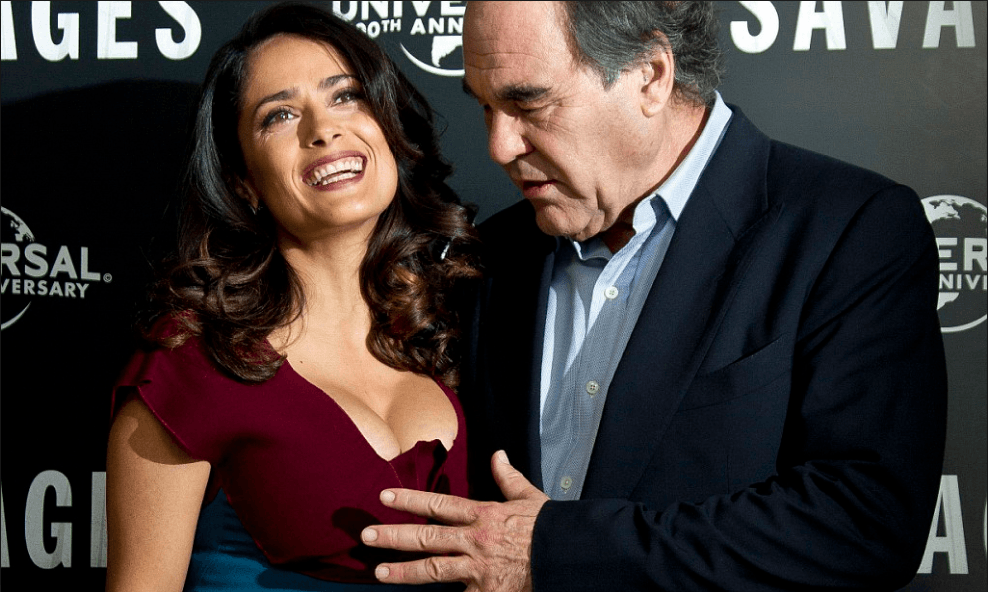Film industry leaders abuse their power, sometimes even their actors
5 min read
dailymail.co.uk
By MEREDITH JENNINGS
Staff Writer
Bernardo Bertolucci has seven different international awards for best director. William Friedkin just recently won Saturn’s Lifetime Achievement Award. Harvey Weinstein was made an honorary Commander of the Order of the British Empire and even a made a knight of the French Legion of Honour for his work in movie production. What they all have is common is not their numerous accolades, but it’s that they abuse the people working for them in order to create art. This is a huge problem in cinema.
The issue is not new, but contemporary movements have finally made it known to the world that they will no longer be content to ignore degrading abuse of power any longer. The #MeToo movement sparked an international conversation about how powerful men take advantage of actors and actresses alike in order show the world their cinematic genius. I can reaffirm what millions of others have chorused across the globe–that the ends do not justify the means and that we must critically consume the work they create.
Bertolucci, Friedkin and Weinstein are just a sliver of the larger underbelly that exists and we can only hope to change the conversation of how we talk about these artists. Pushing limits and unethical choices make these men more than just artists, but abusers as well.
Harvey Weinstein is not a director but rather a producer in the movie industry. However, he still had a hand in how the movies were shaped. He has recently been in the spotlight for his sexual abuse trial, where he pleaded not guilty to five felony charges, including predatory sexual assault and rape, in connection with two women in separate incidents. But rather than go into those sordid details, the filming of the movie “Frida” will be highlighted as an example of how he abused people in the name of art.
Weinstein had a vision about how the titular character should look, despite how everything he proposed completely ignored how the real Frida Kahlo lived. He turned up on set and complained about Frida’s unibrow and insisted that Salma Hayek eliminate the limp she was incorporating into her acting. The latter was due to a horrible bus accident that left Frida Kahlo with life long injuries that directly affected her painting.

But that didn’t matter. The truth only got in the way of Weinstein’s vision for Hayek. He continued to berate the actress and told her that the only thing she had going for her is sex appeal and that there was none of that in this movie. In order to remedy that he threatened to terminate the film unless Hayek agreed to do a sex scene with another woman. And he demanded full-frontal nudity as well. It was at this point that Hayek was reaching her tipping point with the countless demands. For the first time in her career, she had a nervous breakdown before shooting.
“It was not because I would be naked with another woman,” said Hayek in a piece she penned for the New York Times. “It was because I would be naked with her for Harvey Weinstein.”
Many special effects were in place during William Friedkin’s “The Exorcist” because the movie was about a paranormal haunting. Actress Ellen Burstyn played the mother of a child who becomes possessed and because of that she is subjected to all kinds of ghostly attacks. However, to really amplify the effect during a scene where the possessed daughter pushed her mother to the floor, at one point Burstyn was rigged up to a wire that pulled her backwards.
After the first take Burstyn went up to Friedkin to let him know that the wire operator was pulling her too hard. Instead of ensuring the actresses safety on set, Friedkin made no efforts to change how the scene was played and on the next take Burstyn was pulled so hard that she sustained permanent spinal damage.
“Billy is one of those directors that is so dedicated to getting the shot right that I think some other considerations sort of fall by the wayside sometimes,” Burstyn recalled in an interview with The Huffington Post.
A rape scene in Bernardo Bertolucci’s 1972 film “Last Tango in Paris” has recently been re-examined as the actress involved spoke about about Bertolucci’s methods for creating the scene. Marlon Brando’s character, Paul, rapes actress Maria Schneider’s character, Jeanne, using a stick of butter as lubricant.
The scene is intended to be violent and disturbing, with Paul hitting Jeanne and penetrating her as she cries and struggles. But in an interview with the Daily Mail, Schneider said the scene wasn’t in the original script that she was given. In order to create a real sense of violation, Bertolucci waited until the last minute to tell her that she would be participating in this violent scene.
“I was so angry,” Schneider said. “I felt humiliated and to be honest, I felt a little raped, both by Marlon and by Bertolucci.”
It’s important to note that Brando didn’t actually penetrate Schneider in the scene, though that does not vindicate Bertolucci. He forced Schneider to be in a sexually violent scene without her consent and that deserves to be remembered as part of his legacy alongside every accolade.
At the end of the day, we must realize that all of these men did not have faith in the people they hired for their movies. If they are truly influential directors or producers, they would respect and trust the men and women they have hired to do their jobs properly–that is what they are paying them to do, after all. We should hold these creators to a higher, moral standard lest we continue to give more awards to abusers.


